Introduction
Ever wondered how massive industrial machines or even your home workshop tools start smoothly without tripping circuits? The answer lies in electric motor starters—devices that safely power up motors and protect them from damage. Whether you’re an engineer designing a factory conveyor belt or a hobbyist fixing a drill press, this guide will explain electric motor starters in plain language, compare popular types, and even help you pick the right one. Let’s get started!
What Are Electric Motor Starters?
Electric motor starters are electrical devices that control and protect motors during startup. They manage the surge of power when a motor turns on, preventing overheating or electrical fires. Think of them as a motor’s “guardian angel”!
Key Jobs of a Motor Starter:
- Safe Startup: Limits initial power surge.
- Overload Protection: Stops the motor if it’s overworked.
- Control: Lets you start/stop the motor safely.
How Do Motor Starters Work?
Imagine flipping a switch to start a car engine. A motor starter does something similar but smarter:
- Power On: You press the start button, sending power to the starter.
- Contactor Closes: Electromagnets pull contacts together, letting electricity flow to the motor.
- Motor Runs: The motor spins up smoothly.
- Safety Check: If the motor overheats, a thermal relay cuts power.
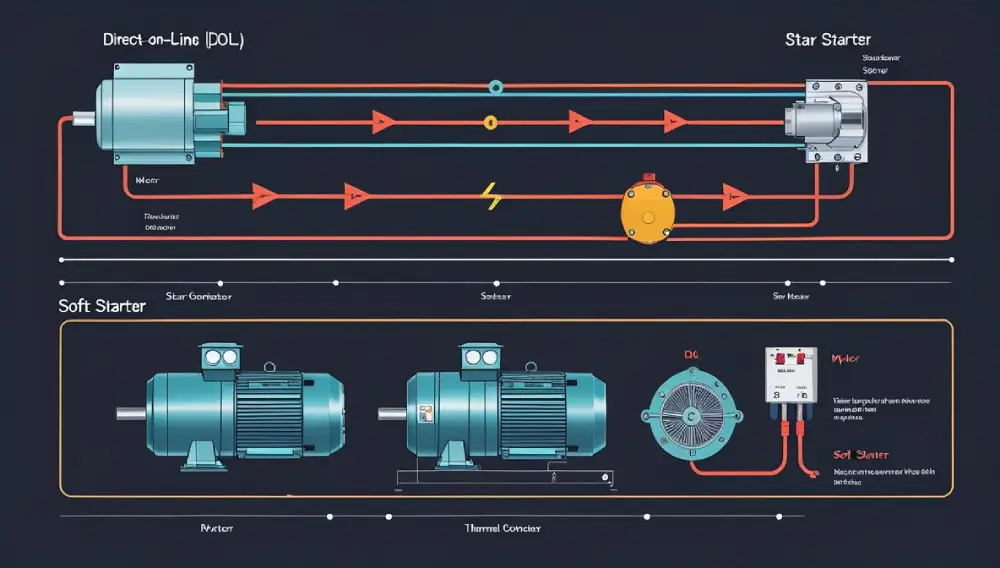
Why It’s Important:
Without a starter, motors can draw 6x their normal power at startup, risking burnout!
Types of Electric Motor Starters
Not all starters are the same. Here’s a breakdown:
| Type | How It Works | Best For |
| DOL (Direct-On-Line) | Full power at startup. Simple, cheap. | Small motors (e.g., water pumps). |
| Star-Delta | Starts in low-power “star” mode, then switches to “delta”. | Medium motors (e.g., HVAC systems). |
| Soft Starter | Gradually increases power. | Conveyor belts, crushers. |
| VFD (Variable Frequency Drive) | Controls speed and startup. | Precision tasks (e.g., CNC machines). |
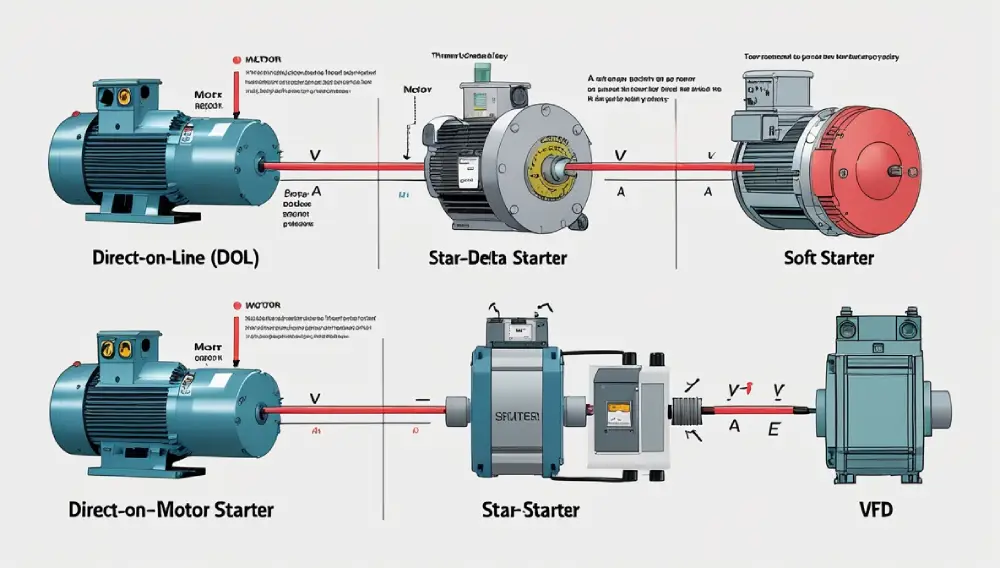
DIY Tip: For home projects like a table saw, a DOL starter from Eaton or Siemens is often enough. Find out more about Siemens’ range of motor starters and protection devices at their product page.
How to Choose the Right Motor Starter
Picking the perfect starter depends on:
- Motor Size: Match the starter’s rating (in kW or HP) to your motor.
- Application:
- Soft Starters for heavy machinery.
- VFDs for speed control.
- Budget: DOL starters cost 50−200; VFDs range from 300−2000.
- Brand Trust: ABB, Eaton, and Siemens offer reliable options.
Pro Tip: Check your motor’s nameplate for voltage and current specs before buying!
Wiring a Motor Starter: Basics
Here’s a simplified setup for a DOL starter:
- Turn Off Power: Safety first!
- Connect Power Wires: Link the starter to the motor and power supply.
- Wire Control Circuit: Add start/stop buttons (see diagram below).
- Test: Power on and press the start button.
Visual Guide (Text-Based):
[Power Supply] → [Starter Contactor] → [Motor]
↳ [Thermal Overload Relay]
↳ [Start/Stop Buttons]
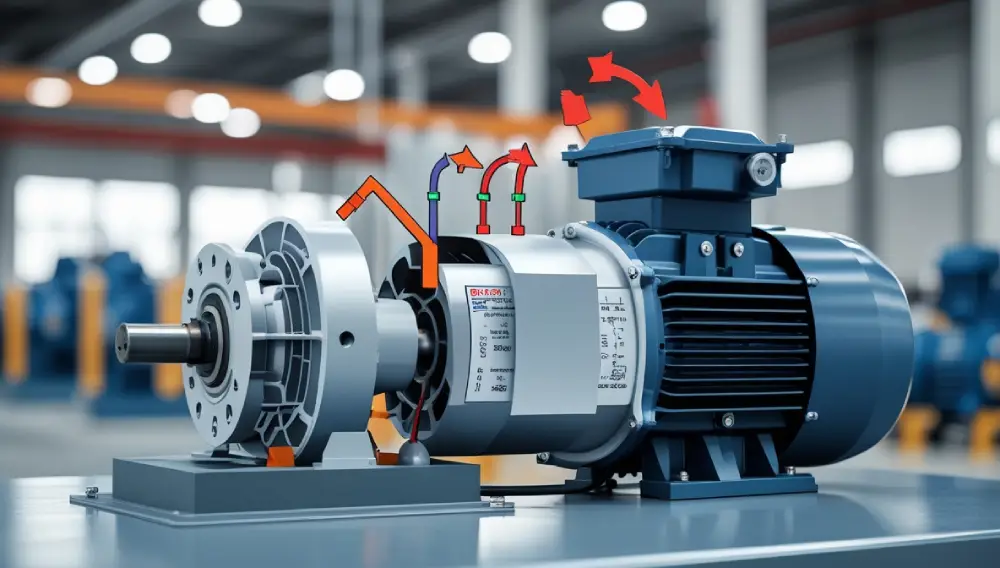
Where Are Motor Starters Used?
You’ll find them in almost every motor-driven device:
- Factories: Conveyor belts, pumps.
- Home Appliances: Washing machines, air conditioners.
- DIY Projects: Woodworking tools, 3D printers.
Real-World Example:
A farmer might use a star-delta starter to safely power a grain silo’s large motor.
Top Motor Starter Brands & Models
- ABB ACS150 VFD: Perfect for precise speed control ($400+).
- Eaton DOL Starter (PKZM0): Affordable for small motors ($80).
- Siemens 3RW30 Soft Starter: Reduces wear on industrial motors ($600).
Where to Buy: Amazon, Grainger, or direct from brand websites.
Pros and Cons of Motor Starters
Pros
✅ Prevent motor burnout.
✅ Extend equipment life.
✅ Easy to install (for basic models).
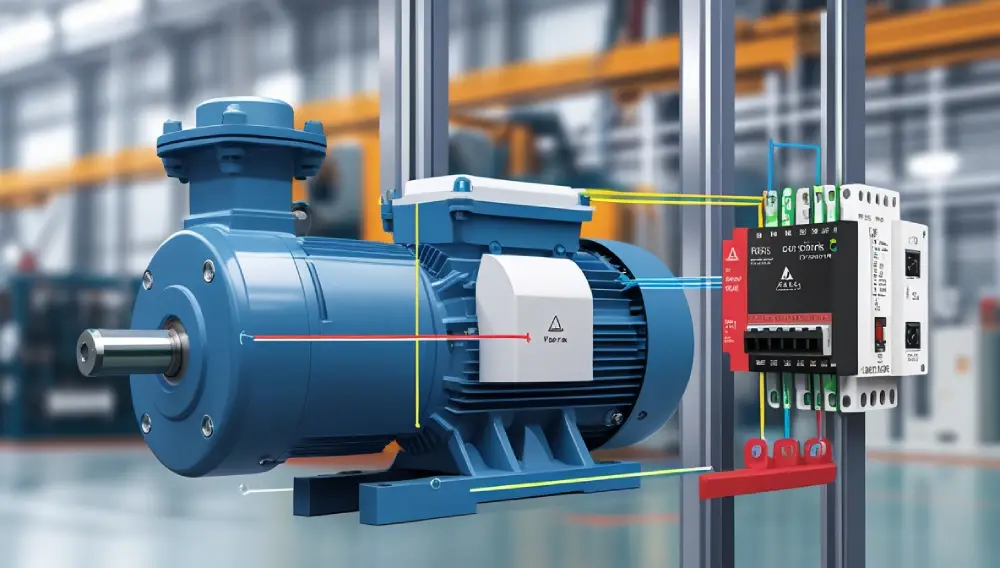
Cons
❌ Complex starters (like VFDs) need expert setup.
❌ High-end models can be pricey.
FAQs
No—it’ll overload the circuit. Use a soft starter or VFD instead.
Starters control startup; breakers only stop overloads.
Most industrial motors do. Small appliances often have built-in protection.
Turn off power, let the motor cool, and press the reset button.
Yes, if you need speed control. Otherwise, soft starters are cheaper.
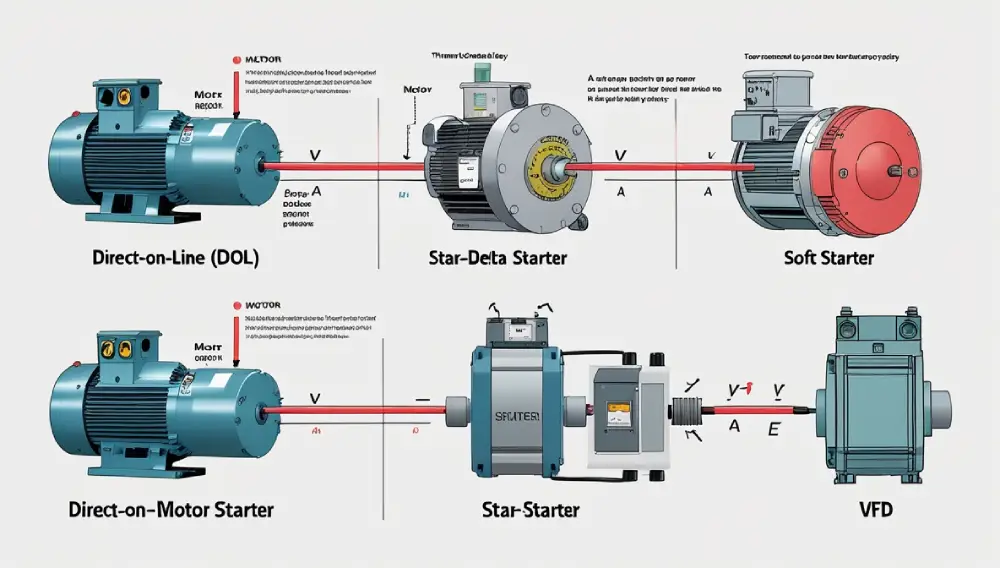

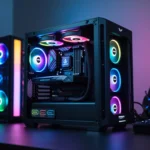
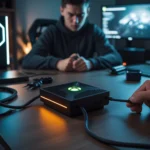
2 thoughts on “Electric Motor Starters| Types| Uses| Smart Buying”